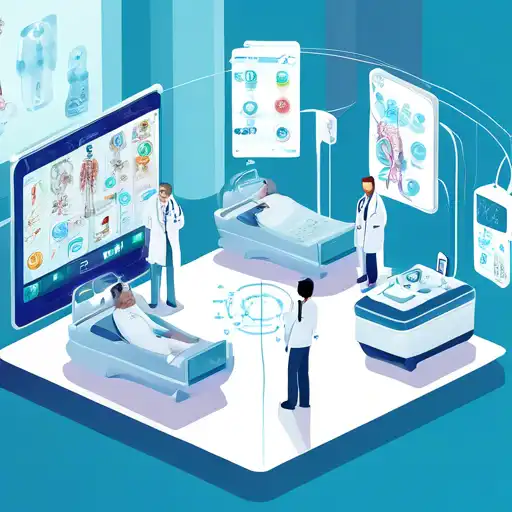Introduction to IoT in Healthcare
The integration of the Internet of Things (IoT) into healthcare is transforming the industry in unprecedented ways. From remote monitoring to smart sensors and medical device integration, IoT technologies are making healthcare more efficient, personalized, and accessible. This article explores the groundbreaking role of IoT in healthcare and how it's setting new standards for patient care and medical services.
The Benefits of IoT in Healthcare
IoT in healthcare offers numerous benefits, including improved patient outcomes, reduced costs, and enhanced patient experiences. By enabling real-time monitoring of patients, healthcare providers can make timely interventions, significantly improving the quality of care. Additionally, IoT devices facilitate the collection of vast amounts of health data, paving the way for predictive analytics and personalized medicine.
Key IoT Applications in Healthcare
- Remote Patient Monitoring: Wearable devices and home monitoring equipment allow healthcare providers to track patients' health metrics in real-time, reducing the need for hospital visits.
- Smart Hospitals: IoT technologies optimize hospital operations, from asset management to patient flow, enhancing efficiency and patient care.
- Chronic Disease Management: IoT devices play a crucial role in managing chronic conditions by providing continuous health monitoring and alerts for potential health issues.
- Medication Management: Smart pill bottles and dispensers ensure patients adhere to their medication schedules, improving treatment outcomes.
Challenges and Considerations
Despite its benefits, the adoption of IoT in healthcare comes with challenges, including data security and privacy concerns, interoperability issues, and the need for robust infrastructure. Addressing these challenges is crucial for maximizing the potential of IoT technologies in healthcare.
Future Prospects
The future of IoT in healthcare is bright, with advancements in AI and machine learning further enhancing the capabilities of IoT devices. As technology evolves, we can expect even more innovative applications that will continue to revolutionize healthcare delivery and patient care.
For more insights into how technology is shaping the future of healthcare, explore our articles on digital health trends and AI in healthcare.
Conclusion
IoT in healthcare is indeed a game-changer, offering solutions that improve patient care, streamline operations, and reduce costs. As the healthcare industry continues to embrace IoT technologies, the potential for innovation and improvement is limitless. The key to success lies in overcoming the challenges and harnessing the full potential of IoT to create a more efficient, effective, and patient-centered healthcare system.
